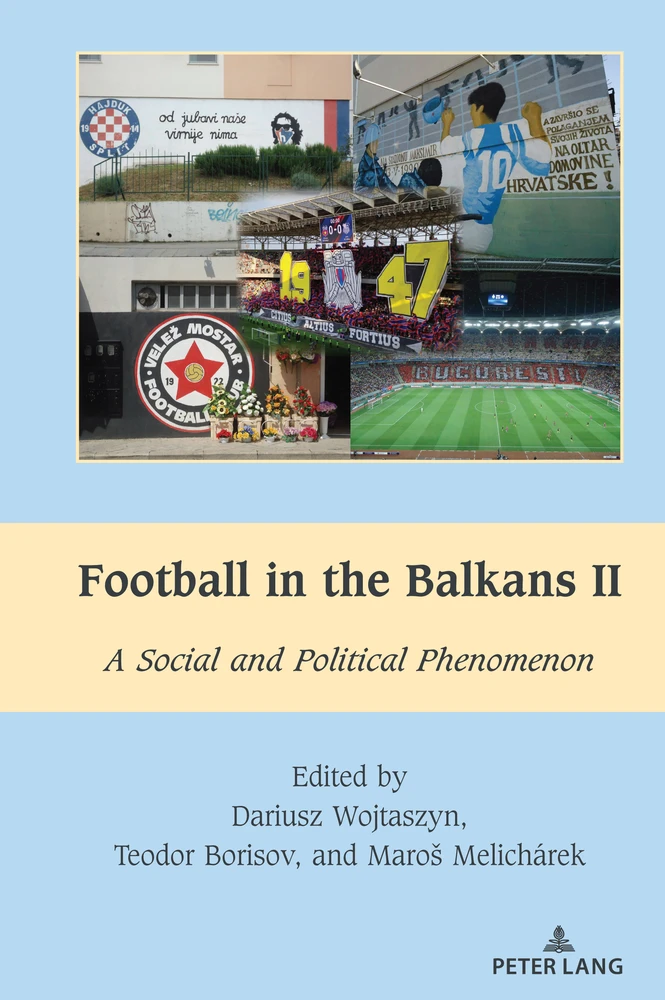“Football in the Balkans II: A Social and Political Phenomenon” is the 9th volume in the series South-East European History, edited by Mihai Dragnea and published by Peter Lang on behalf of the Balkan History Association (BHA). Two of the three editors (Teodor Borisov, Maroš Melichárek) are members of the Association. The volume is concerned with the history of football and its role in Balkan society. The aim is to analyse and discuss various aspects of football as a social and political phenomenon. Collectively the authors address the following themes: football’s political background over the years; the formation and development of fan culture; the importance of football for various social groups and nationalities; the cultural framework; and the impact of football on international relations. The following regions are included: Albania, Bosnia and Herzegovina, Bulgaria, Kosovo, North Macedonia, Romania, Serbia, Slovenia, and Hungary.
Table of Contents
Preface Richard Mills
Introduction: Football as a Social and Political Phenomenon in the Balkans—Local Specificity, Teodor Borisov, Maroš Melichárek, and Dariusz Wojtaszyn
Between Collaboration and Tension: Balkan Football Teams in the Mitropa Cup, Dariusz Wojtaszyn and Lorenzo Venuti
A Haven from the War: Slovenian Football During Occupation (1941–1945), Tin Mudražija
The People’s Republic of Bulgaria and Its Football through the Eyes of the West, Teodor Borisov
Football Culture and Public Memory: The Drone and Banner Incident and Transnational Memory Debates in the Balkans, Tea Sindbæk Andersen
The Whole Neighborhood Was Breathing Steaua: The Urban Dynamics of Bucharest’s Fan Entourages, Andrei Mihail
Jel’ igraju naši? Football, Identity, and Nationalism in Bosnia and Herzegovina, Valentino Grbavac
Orbán Goes to the Balkans: How Does the Support of Hungarian Government Affect Club Football in Neighboring Countries?, Zsolt Havran
North Macedonia Goes to Euro 2020: Football and the Ethnic “Other” on Social Media, Kristijan Fidanovski and Vlora Rechica
Conclusion, Teodor Borisov, Maroš Melichárek, and Dariusz Wojtaszyn


